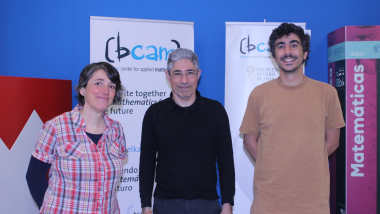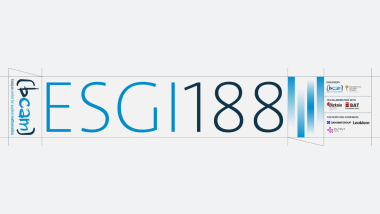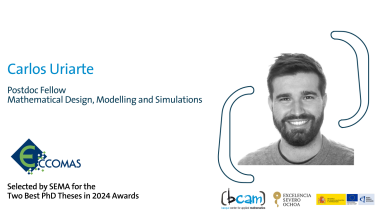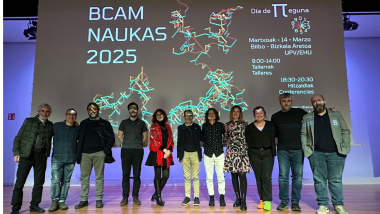The scientists who inspired us (XI): Another brick in the wall
History is written through the hegemony of great names and great legends, for reasons which, a priori, seem unperturbable within a social structure in which a vast quantity of unavoidable rules are as avoidable as the avoidable ones. I intend to present, in anonymous words and with anonymous people, a concise description and recognition of all those women that did also build their names and legends. They are part of the necessary condition of any mathematical achievement. Of course, although there is no need to clarify: this does not intend to disrespect any of those people in which you, reader, unavoidably think when I mentioned the sentence ‘great names’. Any interpretation in that sense deserves my apology and misunderstanding.
I am referring to all those women who, at elementary school, high schools or universities, fix their names and their work in the memory of future ‘mathematicians’, with the only reward of a restricted salary to feed them and their family. A really tiny part of what the so-called ‘Generación del 98’ (a different kind of great names) called ‘intrahistoria’, that is, reality and its transcription away from palaces and journals titles. In this scale, being a woman in science out of the research elite turns you into a negligible piece of the chain of unavoidables, and this unfair arbitrariness requires, from my point of view, the presentation of the following stories.
Let me start with M and R, both teachers in an elementary school. They were not from the city where they worked, nor from the same region. In Spain, if we are fully honest, investment in public education, and namely in public elementary schools, has never been a real priority (and I say more: it cannot be a priority), what results in damaging teacher-student ratios, in disproportionate amount of working hours or in emphasizing the educational difference between neighborhoods (see for instance [1] and [2], the latter referring more generally to the public sector in Euskadi), among others. Let’s stop at this point, and let’s locate the story now in a working people neighborhood, considering also the following: in the public Spanish non-university academic period 2019-2020, 72.7% of the teachers were women [3]. Imagine working with such conditions. Imagine that, even considering this, you are in charge of tens of wild children whose interest is still an undefined nebula. For me, here’s the first magic trick: with different speeds of understanding, they got us to know how to count, read and identify the simplest geometric figures, combining our interest with the discipline of a kid. Let me state that a pedagogical work like this one deserves as much as any magistral seminar paper that provides a new interpretation to the way certain oscillatory integrals deserve. This is not only certain. This is unaccountably marvelous, as well as a fact extended enough so that we should start wondering what is the priority we address to our social approval of some realities compared to others.
To proceed, it’s worth mentioning E. We are now in a high school context. She was the one who told me, for the first time in my life, what a vector space is. As it is, with its assertive definition, she devoted a great (and extra) time of her working day to make us (Bachillerato students who should be studying in a counter-productively mechanic way how to derive a polynomial) think about one same mathematical object, through several perspectives which go beyond the formula-memory-exam method. She told us about elementary ring theory, or even about what really an integral could be beyond the recipe. But wait. I am not saying this for the contents, that was not her goal. Her objective was to give us the notions of the main tools for each field, the main starting questions, probably the shortest way to start knowing what mathematics are. Is there a better definition of educational or pedagogical vocation? Sadly, this is not published in any journal edited by Springer, so it does not deserve our attention.
As last characters, A and P are now coming into play. They were illustrative examples of what, I want to believe, is a recurrent characteristic of mathematical and university environments. From completely different fields (topology and analysis), they are professors who do really restrict their educational job to let their students understand what is going on in their classes, genuinely. I am referring to, again, extra working time (please, pay attention to the two situations in this text in which this locution has appeared) devoted to discussions that, luckily, go further the Bolonia process [4]. The latter considers both the private funding and the adaptation of educational programmes to the market as opportunities to take advantage from. I wonder for who is really addressed such an advantage. Moreover, A and P did not lose the opportunity to express what they thought about this, or even about the centralizer nature of the publishing journal dynamics, the precarious working conditions of substitute professors [5], as well as the shame they felt when modest economical situations from the students did stop them to continue studying. When we talk of exemplary mathematical professors, I sometimes wonder if we have finally lost the orientation of what is really important in a university context. As important as mathematics.
To finish, a corollary. I intend also with these lines, from my humble and modest perspective, to send to my colleagues (understood as elements of a larger entity called research) the attention of what kind of priorities we are arbitrarily choosing to decide what is good research or bad research. We develop the role of answering very tiny questions who nobody before had answered. Therefore, given the modesty and generosity that this task requires, it is already time to abandon the ivory towers that centuries of elitist researchers have built in our tiny part of our world. Mathematics, as particular and common as any other thing, is the product of the work of many more women and men than any of us could expect.
Pablo Merino (PhD Student at BCAM)
References:
[1] https://www.elsaltodiario.com/educacion-publica/claves-huelga-educativa-comunidad-madrid
[2] https://efe.com/pais-vasco/2024-02-13/huelga-sector-publico-3/
[3] chrome-extension://efaidnbmnnnibpcajpcglclefindmkaj/https://www.educacionyfp.gob.es/dam/jcr:b9311a59-9e97-45e6-b912-7efe9f3b1f16/datos-y-cifras-2021-2022-espanol.pdf
(from the website of the Ministerio de Educación y Formación Profesional)
[4] https://blogs.publico.es/dominiopublico/416/golpe-de-estado-en-la-academia/
Related news
Zentroari buruz
Zentroari buruz
ESGI 188 (European Study Group with Industry) Bilbon izango da 2025eko maiatzaren 26tik 30era
BCAM pertsonak




